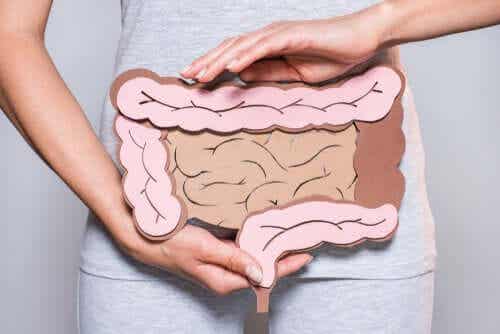
Last update: 07 September, 2020
Do we really know what happens in our mind? Do we know ourselves? Can we control our feelings so that we don't negatively affect others? Recognize ours repressed emotions it is a powerful weapon for understanding our behavior.
Thanks to neuroscience, neural networks and the emotional functioning of the brain have been discovered and described since the end of the XNUMXth century. Our emotional world has finally attracted the attention it deserved; emotions, from simple automatic reactions, have begun to arouse the scientific interest of specialists in the field of human behavior.
From this moment on, the importance of educating society on the ability to recognize, understand and manage one's emotional states has spread; the aim was to prevent them from turning into repressed emotions capable of conditioning our behavior.
"Each repressed emotion furtively leaves its imprint on our behavior, through emotional patterns that decide for us".
-Elsa Punset-
For this reason, so much emphasis is currently placed on recognizing repressed emotions. This means, in fact, knowing ourselves, allowing us to understand what happens in us, being able to manage it well and act according to our feelings.
Understanding repressed emotions means knowing our identity
Knowing what happens inside of us means knowing ourselves. Repressed emotions are those that we do not want to listen to or to which we give a vague importance; however, they take on great strength and end up guiding our behaviors and thoughts.
“What you deny submits to you. Everything that happens to you, if correctly understood, leads you towards yourself ”.
-Carl G.Jung-
Knowing our emotions gives us the opportunity to know why we behave one way or another. Everyone filters situations based on what he feels: that's why every person acts differently. Our experiences lead us to see the world in a special and unique way. Each situation generates a different emotion in us and that is why knowing ourselves leads us to understand how and why we act in a certain way.
When we repress an emotion like anger or fear, when we try not to be sad, when revenge takes strength or pain speaks for us, we give way to an independent functioning of unmanaged emotions; these emotions will express themselves through our actions.
A study on emotions, conducted by Stanford University, revealed that people who tend to repress feelings react with a much stronger physiological activation in critical situations compared to those who, for example, express their anxiety or anger.
For this reason, in general, those who do not express their emotions or do it with difficulty, run a greater risk of developing somatic problems such as muscle tension, headaches, skin reactions or more complex diseases. In short, emotions find a way out through less functional methods for us.
The memory of the body and mind
Sometimes faced with certain situations we happen to react in a way that surprises us. This happens because of the memory of our experiences, which we integrate at times consciously and at others unconsciously. When we repress an emotion, we don't filter it and allow it to creep into our memory without realizing it.
Our task, therefore, is to understand what happens and what we feel in each moment. If we can't identify emotions, then we won't be able to manage them. The first step will therefore be to take care of them, to give them a voice when they ask to speak. Otherwise we repress them, allowing them to act independently.
We really know what's happening to us when we say we understand why it happens. If we begin to listen to ourselves, we will be able to understand and regulate our behavior, act in a coherent and understandable way. In reality, only if we give voice to repressed emotions, we get closer to our true identity.


























